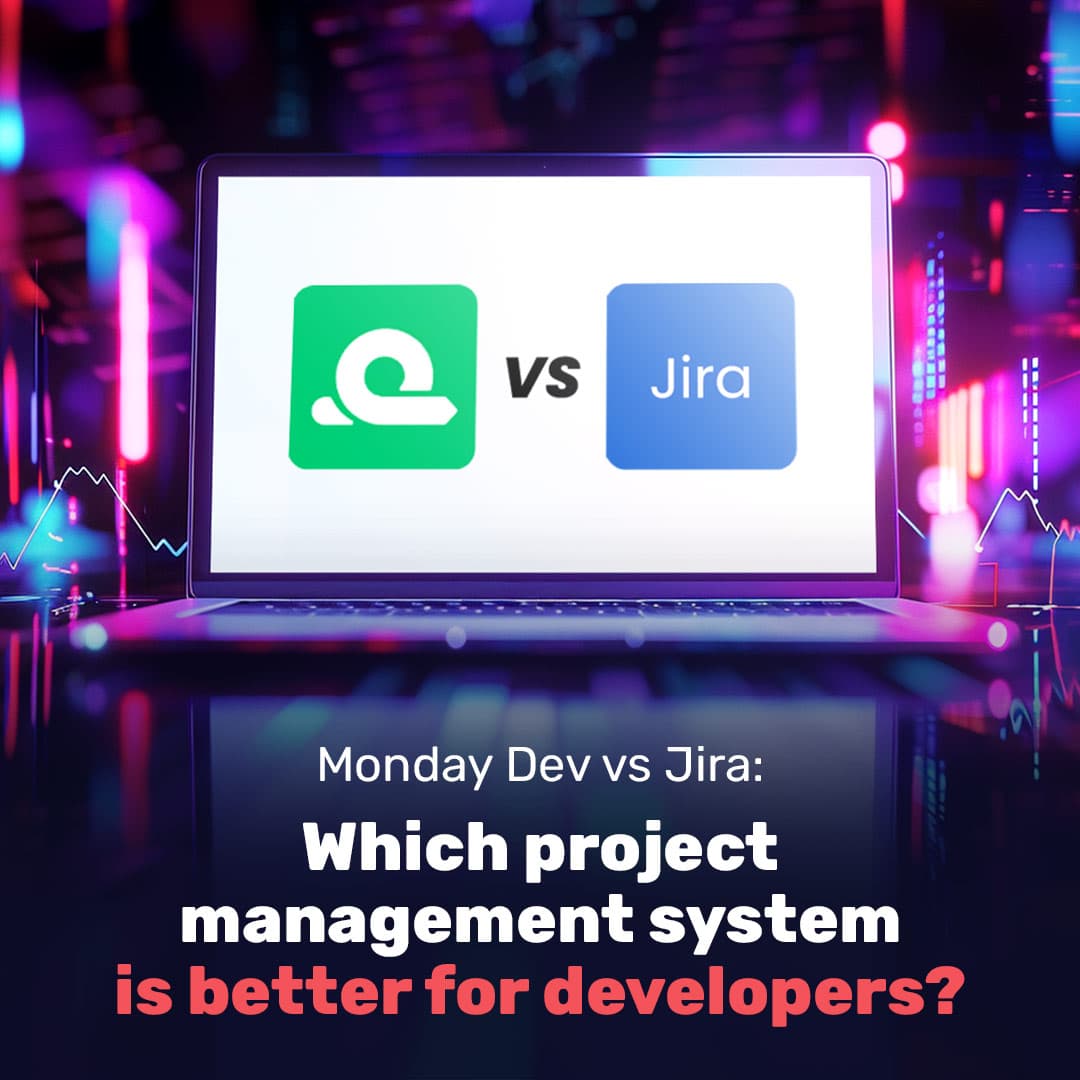There are about two hundred and sixty local authorities in Israel as of 2025, and all of them are required to manage dozens of projects, budgets and initiatives each year under public oversight, government regulation and an expectation of transparency. The Ministry of the Interior offers a structured model for building effective work plans, but in practice the application relies on manual systems, scattered documents and spreadsheets. The Monday.com management system makes it possible for the first time to turn the principles of the public management model into a digital, measurable and collaborative process. This article explains how each stage in the official model translates into a practical tool within Monday and how local governments of all sizes can implement it efficiently while addressing the needs of both the management layer and the execution layers.
What is Monday and how do municipal authorities actually use it?
Monday is an advanced work management platform that enables public bodies to manage processes, projects, urban program development, budgets and tasks in a single workspace that is transparent, modular and accessible to all relevant parties at all levels. Its uniqueness in managing public civil systems is the ability to create a direct, continuous and efficient connection between the managerial tier and the operational tier. It is a tool that meets all requirements for coordination, supervision and initiating tasks in real time. Workers receive clear assignments with responsibility and a due date; managers can see in real time where gaps are occurring, cancel duplications and prioritize tasks based on data rather than assumptions. In addition to businesses and organizations, more and more cities and local authorities around the world in 2025 are choosing to improve civil and financial management with the help of Monday. One example is Baltimore, whose employees use Monday to manage interdepartmental services, internal approval processes and monitoring of infrastructure development projects. In Britain the system has been approved for purchase in government tenders under the G‑Cloud framework, and it is used in hundreds of public bodies. Monday meets strict information security standards such as SOC 2 and ISO 27001, making it suitable for use in sensitive bodies including government ministries, local authorities and educational institutions. In Israel it is possible to learn from the largest city how to integrate Monday. Tel Aviv has chosen Monday for managing cross‑department work processes, including everyday municipal life, infrastructure development, resident services and coordination between departments, subcontractors and external suppliers. The platform helps the management obtain an up‑to‑date and reliable overview and enables city employees to understand what is required of them at every stage in an accessible and clear way.
How do the capabilities of Monday integrate in managing a local authority?
Implementation of policy: Every mayor or council has a vision or core guidelines that define overall goals and the values that will bring them about in every work plan. The real difficulty is translating the vision into action on the ground in a way that drives programs, sets priorities and serves as the basis for broad policy. Monday implementation gives an effective response to all the challenges facing managers in a municipal authority:
• Translating general principles into actionable policy: the vision appears as a constant board that underpins the planning of programs, goals and tasks. Every action is linked to an overall objective.
• Ensuring that each department operates according to the vision: with customized boards, managers can identify projects that diverge from the desired direction and compare departments by level of implementation.
• Providing employees with a broad perspective: whether it is the supervision division, sanitation, construction or education, people who meet residents in the field understand the full picture – not only what actions are required but also what their implications are. This reduces resistance, increases involvement and allows workers to align and make decisions that serve the policy.
Real situation assessment based on data: The ability of the management to make informed decisions in a local authority depends on the quality of the data flowing from the field. In reality things are more complicated. Inspectors and field coordinators must collect and transfer information under workload and time pressure, often without consistency in formats and reporting methods, sometimes using manual tools. Managers have difficulty cross‑referencing information, identifying trends and reacting in real time, creating a recurring bottleneck. Monday offers a complete solution through situation assessment boards tailored for each department. Operational personnel enjoy a simple interface for entering information, uniform forms and automatic reminders to ensure full data completion. The management receives a visual display of all information: graphs, trends, gaps and risk points. The system allows easy analysis and cross‑checking of information, deriving insights, examining courses of action and issuing instructions for execution in real time, instead of waiting for future reports such as quarterly summaries.
Measurable goals in every municipal department: Success in managing a local authority is measured throughout the entire term, not just at the end of five years. Each budget and each new project must promote the vision and policy while setting clear, measurable and achievable goals. The challenge for the management level is to define ambitious yet realistic objectives that can be monitored and that integrate the work of all bodies within the authority. For the execution level the challenge is to understand exactly what the goal is, what their role is in achieving it and when and how it is measured. With Monday it is possible to build dedicated templates for every goal you define, including metrics, budgets, schedules, roles and synchronization between different departments. Directors and heads of departments can view the full picture, identify duplications or gaps, handle problems raised by the field in real time, make informed prioritizations and ensure that the goals connect to the broader strategic plan of the authority. At the same time employees receive a focused display. They concentrate only on what is relevant to them in a clear and intuitive way. The departmental goals thus become more than general planning tools – they become an operational mechanism that translates each goal into measurable action in the field, with constant monitoring of status and adherence to timelines.
Transition to execution of operational tasks: In municipal management, the transition from policy to implementation depends on every employee knowing exactly what is expected, what the deadline is and who is responsible. One common failure in the implementation process is a lack of clarity in the field: verbal requests, unsynchronized documents, files or plans that are not accessible to everyone. The result is known: delays, instructions falling between the cracks, errors in time and budget management and even double and unnecessary work. Monday has all the tools to provide a precise answer at each level. For city or council workers every task is a clear item with a schedule, responsible person, status, budget and comments. For managers it is an advanced control tool that allows them to see all open tasks, set priorities, identify bottlenecks in real time and make adjustments on the fly. Contractors and external suppliers are also integrated. Whether it is gardening, sanitation, after‑school program management, infrastructure work or security, every service provider can report and be monitored within the Monday system. This includes tracking payments, service quality, response time, performance and the status of dealing with faults. Thanks to personalized views, automatic reminders and full transparency, Monday turns the work environment from confused to managed. Coordination between teams, monitoring progress and accurate execution become routine rather than a burden.
Metrics and control – analyzing, understanding and improving: Collecting metrics and reports is an inseparable part of the management process in any local authority. The real challenge is to extract practical insights from them in real time: understanding cross‑departmental trends, identifying gaps between planning and execution and using metrics to make informed decisions. On the other hand, the execution level needs daily guidance: whether targets are being met, where there are shortages and what can be improved now instead of later when it is too late to correct. Monday transforms the metrics into a living management tool rather than static reports. For the management it is possible to define KPI fields in the boards and derive custom reports and strategic dashboards. The display allows drilling down by area of activity, time range, department or responsible person and identifying trends even before a failure occurs. It is also possible to activate automatic alerts that warn of deviations from targets, delays in execution or budget overruns and enable managers to respond in real time. For workers the metrics are presented clearly and are focused only on what is relevant to them. The worker sees whether tasks are completed, whether there are gaps and what is considered success without being flooded with unnecessary information and statistics.
Annual planning cycle – turning the process into an organizational routine: One recurring difficulty is inconsistency in planning. Each year the process almost starts from scratch, without a structured foundation, without fixed timelines and without organized documentation of what was done in previous years. Department and division managers find it difficult to follow cross‑sectional progress and employees find it difficult to understand what is expected at each stage throughout the year. Monday offers a clear way to deal with this challenge: creating a fixed annual board with defined milestones. This may include data collection, planning workshops, publishing tenders for the following year, preparing for the end of contracts with suppliers, recurring events, approval of work plans, and budget and quarterly control discussions. For the management it means creating a constant management backbone – a uniform structure that repeats every year with the ability to compare between years, draw conclusions and make continuous adjustments. For employees the board makes clear at any given moment where the authority stands in the annual cycle, what is expected now and what the next stage is. Thus annual planning becomes a professional routine that produces continuous improvement, with the ability to compare between years and derive real lessons. Consistent implementation of the planning cycle in the system allows the authority not only to meet the Ministry of the Interior’s requirements but also to provide timely answers to residents and improve internal functioning over time.
Smart implementation of government policy through digital means: In 2025 all local authorities in Israel are required to streamline processes, reduce bureaucracy and implement effective work plans according to the Ministry’s framework. Many authorities find it difficult to do so because they are stuck with outdated management tools and manual processes. Monday offers a complete solution: to lead the vision into a clear work plan with tasks, goals, metrics and control in a single board that is always available to all levels. Global data show that more than eighty percent of projects in authorities and the public sector exceed tasks and budget, while only half a percent meet standards of time, budget and benefit. This means that if an authority truly wants to meet its goals it must adopt a digital tool that enables control, alerts and transparency without errors or delays. Implementing Monday.com allows local authorities to improve adherence to schedules, reduce delays and drive planning and execution based on real metrics. Every investment in smart management infrastructure is translated into tangible results in the field and improved satisfaction among both employees and residents.
How to choose a partner to implement Monday in a local authority and why it matters
The transition of a local authority to management with Monday is a decision that involves more than choosing the platform itself; it also involves choosing a partner who will accompany the organization throughout the process. The implementer is the party that adapts the system to the structure of the authority, defines the metrics, designs the boards, trains the users and, most importantly, ensures that the system serves the authority’s goals and does not remain unused technology. Web3D is an official and certified partner of Monday.com with twenty‑eight years of experience in leading digital transformation projects, system design and the implementation of smart work solutions. The company has operated over the years in a wide range of sectors – from the municipal and governmental sector, through health and education, to the security, transportation and industrial sector, with a deep understanding of organizational structures, work processes and public regulation. Web3D has unique experience working with cities, local and regional councils, municipal corporations and public bodies operating under the authority. The company has proven ability to lead cross‑departmental projects of any scope. Familiarity with the complex structure of authorities – including planning, budgeting, education, welfare, logistics, operations and human resources – allows Web3D to build a complete Monday suite with the most precise solutions connected to organizational reality at every level. The expert team includes industrial and management engineers, process consultants, information systems specialists and UX/UI experts – all with proven experience working with organizations that have multiple levels and processes. The service includes mapping the unique work processes of the authority, adapting the platform to organizational needs and a gradual implementation that includes accompaniment, training, documentation and the generation of reports for management and government ministries. In addition, Web3D complies with all standards required for working with local authorities in Israel, including accessibility standards, information security and government guidelines for digital services. The company is certified to ISO 27001 (information security management) and ISO 9001 (quality management) and applies them systematically in every project, including those involving municipalities and councils. Compliance with these standards ensures the highest level of security, quality and operational control for the local authority. The solutions implemented meet relevant regulatory requirements and provide the authority with security, compliance and convenient reporting to all government bodies. In simple terms, when implementing Monday with Web3D you not only receive a well‑managed system but also a strategic partner who understands municipal management, identifies the needs of the authority and accompanies it hand in hand in leading real operational change. The design and implementation process carried out by Web3D is aimed at the real goals of the authority, adapted to its organizational structure, creates measurable impact and relies on a deep understanding of the challenges of local government in Israel.
Questions and answers about managing work plans in local authorities with Monday
What is Monday and how does it help local authorities?
Monday is a system for managing processes, projects and goals that enables authorities to move from manual and scattered management to digital, transparent and data‑based management that aligns with the Ministry of the Interior’s framework.
How does Monday help link a municipal vision to activities on the ground?
The system makes it possible to build work boards that connect a city’s vision and policy to daily tasks. Every project, goal or task is derived from the vision, displayed clearly and measured according to the metrics that were defined.
What is the advantage of Monday compared with managing via Excel or manual documents?
Scattered spreadsheets are not updated in real time. Monday offers a central work board with reminders, synchronization between departments, customized views and advanced reports that prevent lack of coordination and double execution.
How can metrics and KPI be managed on a daily basis in Monday?
It is possible to define KPI fields in the boards, activate alerts about deviations, analyze trends and create dashboards tailored to managers. The metrics are also displayed to employees in a simple and clear way.
Does Monday meet the Ministry of the Interior’s requirements regarding planning and control?
Yes. Monday makes it possible to manage all stages of the annual planning cycle – vision, situation assessment, setting goals, execution and control – in a structure that aligns with the official model of the Ministry of the Interior.
Are there examples of authorities that already use Monday?
Yes. One prominent example is Tel Aviv, which uses Monday to manage projects, tasks and resident services between departments.
How does Monday affect the decision‑making process?
By collecting information from the field in real time, analyzing gaps and presenting data visually, management can make informed decisions faster and in a more data‑driven manner.
Why is choosing the right implementation partner important?
The success of the project depends not only on the platform but on the body that accompanies the process. The implementation partner ensures adaptation to existing processes, defines boards and metrics, trains users and leads to effective use of the system.
Why choose Web3D as the implementation partner for a local authority?
Web3D is a certified partner of Monday with twenty‑eight years of experience serving public bodies. It specializes in working with municipalities, councils and municipal corporations, meets ISO 27001 and ISO 9001 standards and fully complies with regulatory requirements.
What does the implementation process offered by Web3D include?
It includes custom mapping of municipal processes, building boards, training, ongoing accompaniment, documentation and report generation for government and management, all under professional supervision with industrial engineers and information system experts.










